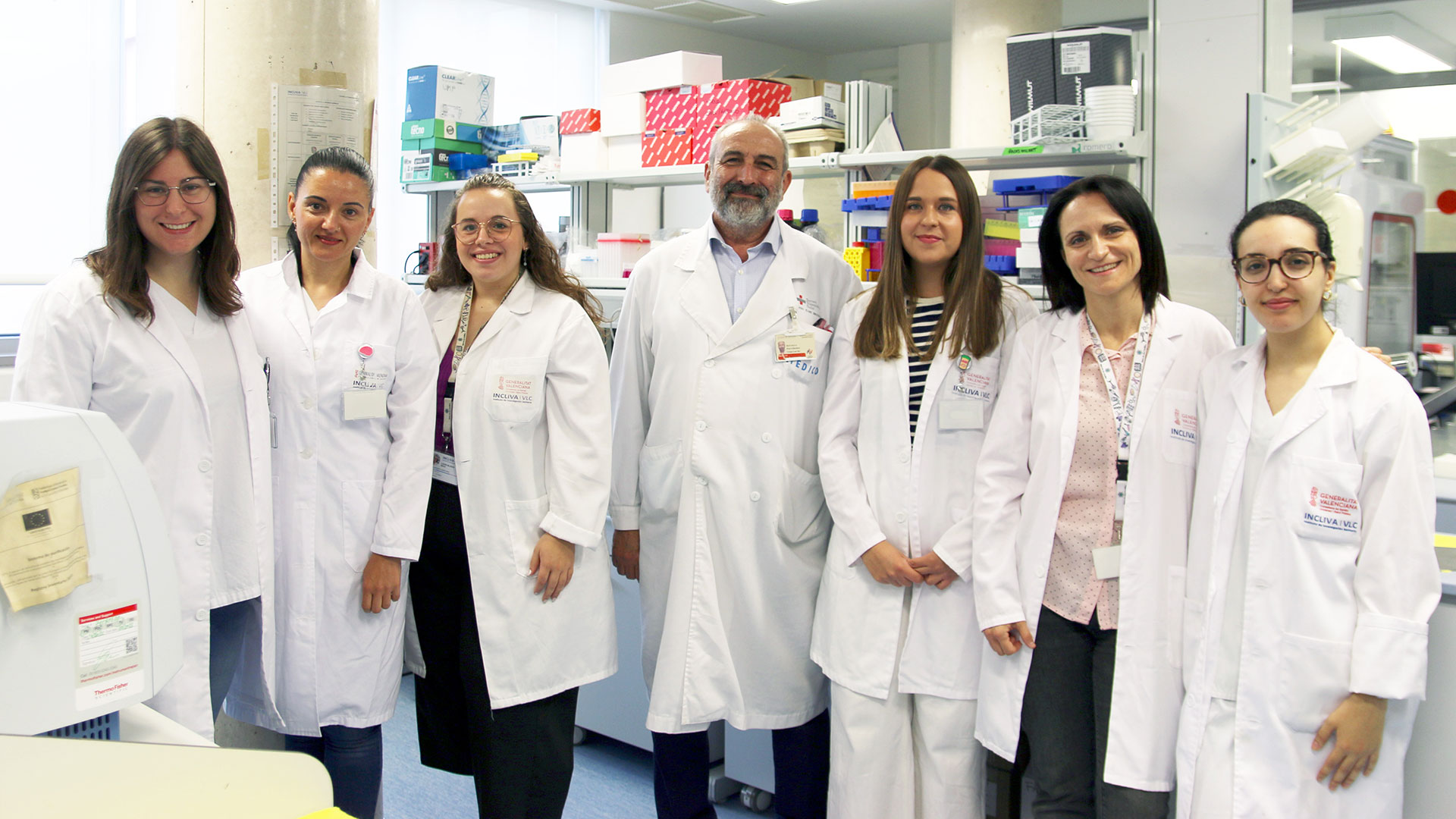- Since 2013, it has handled more than 150 requests and has participated in the management of samples from around thirty national and international clinical trials, including the one that has led to the development of BIMERVAX, the Spanish vaccine against COVID-19.
- The first Wednesday in June is National Organ and Tissue Donation Day, a date on which the altruism of these donations, which contribute to saving and improving the lives of many patients, is made visible.

From left to right: Àngela Bañuls Alemany, Olga Bahamonde Ponce, Laura Blasco Maza, Antonio Ferrández Izquierdo, Marta Belda Moscardó, Lorena Peiró Chova and Amina Benimoun Rami.
The Biobank of the INCLIVA Biomedical Research Institute, from the Clinical Hospital of Valencia, currently preserves over 400,000 human biological samples from more than 20,000 patient donations with various pathologies, available to meet the requests of the research community. In order to optimize storage space and sample utilization (serum, plasma, DNA, etc.), the samples are divided into aliquots (small portions of the sample).
Since its establishment in 2013, the INCLIVA Biobank has fulfilled over 150 sample requests and has been involved in managing samples for around thirty national and international clinical trials in different specialties, including oncology, cardiovascular diseases, pulmonology, nephrology, psychiatry, and surgery. This includes the trial that led to the development of the Spanish COVID-19 vaccine (BIMERVAX).
The INCLIVA Biobank is a platform that supports biomedical research, primarily by providing the scientific community with normal and pathological human biological samples collected and stored under optimal conditions, along with high-quality associated data. Its role is essential in providing technical support to research units and groups at INCLIVA and other institutions, as well as promoting translational research by facilitating the incorporation of new techniques and diagnostic, prognostic, treatment, and patient monitoring markers.
The INCLIVA Biobank stores and distributes different types of biological samples (serum, plasma, urine, cells, etc.) for the study of various pathologies, as well as experimental cancer models in humans.
It was authorized in 2013 and is registered in the National Registry of Biobanks (ISCIII). It is part of the Biobanks and Biomodels Platform of the Carlos III Health Institute (ISCIII), which is organized into four scientific-technological HUBS, including Biobanks, Organoids, Animal Models, and 3D Printing.
In 2022, the INCLIVA Biobank received samples from nearly 1,500 new donors, generated almost 60,000 new aliquots, and delivered 9,500 samples for research. Since the beginning of the year, it has received samples from around 1,000 new donors, generated almost 30,000 new aliquots, and delivered about 2,500 samples for research.
Dr. Lorena Peiró, coordinator of the INCLIVA Biobank, on the occasion of the National Day of Organ and Tissue Donation, commemorated on the first Wednesday of June to raise awareness of the importance of these types of donations, highlights “the altruism of those who donate both organs and tissues for transplantation and biological samples in favor of health research, contributing to saving and improving the lives of many people suffering from different pathologies.”
Organ and tissue donations are regulated by legislation that primarily ensures the altruism of donation, respect for the donors’ will, and the guarantee of anonymity in donation. These are also fundamental pillars in the donation of human biological samples to a Biobank for research.
Dr. Antonio Ferrández Izquierdo is the scientific director of the INCLIVA Biobank. In addition to the coordinator, Dr. Lorena Peiró Chova, the current team includes Olga Bahamonde Ponce, Marta Belda Moscardó, Àngela Bañuls Alemany, Laura Blasco Maza, and Amina Benimoun Rami.
